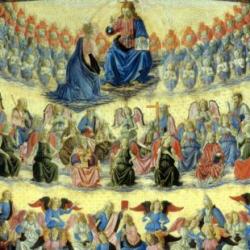Religious people usually have a theological framework upon which they base their belief in some kind of worldview, even if they’re not very aware of it. It certainly is true of Christianity. Many Christians adopt some type of systematic theology upon which they base their religious beliefs. And in the case of Christians and some religious Jews, they view their sacred text, the Bible, in this way as well.
It thus becomes difficult for especially Christians to read the Bible apart from their preconceived notions based on their theological system. To do otherwise is called “critical thinking.” That is, people with preconceived beliefs who are critical thinkers can still, to some degree, lay aside their biases temporarily and think “outside the box.” Such critical thinking can be difficult for most people to do and even takes practice. For most, they find comfort in not having to challenge anything about their theological framework, and to do so might become disturbing to them. They might say, “Leave me alone; I know what I believe.”
For example, the Bible has much information about angels. Most Christians who believe that the Bible is true, and that there really are angels, usually have some further beliefs about them. For instance, some Christians believe all angels are good and that they reside in heaven with God. But actually, the Bible relates that there are two types of angels: good and bad (e.g., Revelation 12.7-9). In most Christian theological systems, they accurately present good angels as belonging to God and evil angels as belonging to Satan, also called the Devil in the Bible.
This truth about the existence of a Devil and his evil angels arouses the questions of how and when they became evil. But the Bible does not have any information that might answer these two questions. The reason Christians might focus on this dilemma is that their theological framework provides that everything and everyone, including both humans, angels, and Satan, were creating by God. Yet the Bible never says this either. Many Christians think that God must have created the angels or else he wouldn’t be God. What they mean by this is that their theological system says God is sovereign. They mean that due to divine providence, nothing could exist apart from God bringing it into existence. But the Bible nowhere says this, either.
I have blogged before on this subject with a post, “The Bible Does Not Say God
Created the Angels.” Christians have two main biblical texts they cite to support their belief that God created the angels. Psalm 148 is probably the main one. It begins in the NRSV, “Praise the LORD! Praise the LORD from the heavens; praise him in the heights! Praise him, all his angels; praise him, all his host!” The 150 psalms in the Bible are lyrics set to music. There likely are seven stanzas in Psalm 148, and this is the first.
The second stanza in Psalm 148 is in vv. 3-4 (NRSV), “Praise him, sun and moon; praise him, all you shining stars! Praise him, you highest heavens, and you waters above the heavens!” So, all these inanimate objects are God’s creation in his universe.
The third stanza in Psalm 148 is in vv. 5-6. Verse 5 says, “Let them praise the name of the LORD, for he commanded and they were created.” Christians who cite this text to support their belief that God created the angels claim that this means God created all that is mentioned so far in this psalm, which includes angels and hosts, which latter are a certain class of angels. In saying, “they were created,” the psalmist probably refers only to the inanimate objects of the previous, second, stanza, thus not all in both.
Moreover, saying God “commanded and they were created” alludes to Genesis 1. It tells only about God creating the earth, its water, light, darkness, sky, stars, etc. And how does the author of this text say God did that? The same way the psalmist says he did it–by commanding them into existence. But in Genesis 1-2 and all other biblical texts that mention anything about God creating the universe or portions of it, the Bible never says God also created the angels.
Then we read of the second half of the third stanza in Psalm 148, which is v. 6, “He established them forever and ever; he fixed their bounds, which cannot be passed.” That can only refer to the inanimate objects aforementioned in this psalm. That is, it refers to our moon, the stars, and and our sky that have fixed boundaries.
Angels don’t have fixed boundaries since they come and go. For example, when Satan appeared before God in heaven during the days of Job we read twice, “The LORD said to Satan, ‘Where have you come from?’ Satan answered the LORD, ‘From going to and fro on the earth, and from walking up and down on it'” (Job 1.7; 2.2).
Thus, I think we must conclude that Psalm 148.1-6 does not mean God created angels.
Another biblical text some Christians cite to support their view that God created the angels is Jude 6. It reads, “And the angels who did not keep their own position, but left their proper dwelling, he has kept in eternal chains.” I have an unpublished book that has a chapter solely about this verse. I won’t go into detail about this here except to say I suspect this reading is not translated properly due to verbal aspect in Koine Greek, which is a rather new endeavor that New Testament Greek scholars have been involved in during the past 30+ years.
But those Christians who cite Jude 6 for support read it as translated above. Notice that it says some angels “did not keep their own position, but left their proper dwelling.” Yet those same Christians cite Psalm 148.6 mentioned above and apply it to angels, which says, “he fixed their bounds, which cannot be passed.” Those two concepts contradict.
So, the teaching that God created the angels is not affirmed in the Bible. The Jewish Encyclopedia well observes, “Upon the important problem of the origin of angels Biblical writers do not touch; but it is inferred [in the Jewish Bible] that angels existed before the Creation (Gen. i. 26; Job, xxxviii. 7).”
And most Christians further believe that Satan and his angels had a fall into sin at some certain time in the past, and this is why they call them “fallen angels.” But neither does the Bible says anything such thing.
Some Christians cite another Old Testament text to more specifically support their view that God created Satan. Some church fathers, including Jerome, interpreted the king of Tyre in Ezekiel 28 as Satan, the Devil. Some also interpreted the prince of Tyre therein as Satan as well. Ezekiel probably means that the prince in vv. 1-10 later became the king in vv. 11-19.
God says through Ezekiel concerning the prince of Tyre, “you have said, ‘I am a god; I sit in the seat of the gods, in the heart of the seas,’ you you are but a mortal, and no god” (Eze 28.2a). The NRSV translates the Hebrew word adam, here, as “mortal,” whereas it more literally means “man,” and that is how most Bible versions translate it. Thus, God through Ezekiel calls this prince of Tyre a “man,” which must rule out the Satan interpretation of him. Furthermore, Ezekiel says of this prince of Tyre, “you compare your mind with the mind of a god” (v. 2b), which distinguishing of the two further indicates this prince is a man.
God says through Ezekiel concerning the king of Tyre, “the day that you were created” (Eze 28.13). If the king of Tyre was Satan, that would have to mean that God created Satan. I was taught this viewpoint in my early theological education. But I abandoned it in the 1970s after studying this subject and reading Bible commentaries about it.
A large majority of Old Testament scholars nowadays agree–the king of Tyre in Ezekiel 28 refers to an actual king and thus not Satan the Devil. However, some might say that such a prideful human king could have been influenced by Satan, to which I agree.
The King James Version translates Ezekiel 28.14, “Thou art the anointed cherub that covereth,” thereby identifying the king of Tyre as a cherub, which is an angel. Most modern Bible versions translate likewise. However, the NIV and ESV have a footnote explaining that the meaning of this Hebrew phrase is “uncertain.” And the JPS Tanakh in English, the premiere Jewish Bible translation in English, also has such a footnote.
For many decades, the English Bible version that has been preferred by Bible scholars has been the RSV and NRSV (New Revised Standard Version). Ezekiel 28.14 reads in both versions, “On the day that you were created they were prepared. With an anointed cherub as guardian I placed you.” Accordingly, God directed this angel to guard the king; thus, we might call him “a guardian angel.” But due to the king’s excessive pride, God says through Ezekiel “the guardian drove you out” (v 16). Moreover, v. 18 has God saying to this king that fire consumed him, that “I turned you to ashes on the earth . . . you have come to a dreadful end and shall be no more forever” (vv. 18-19). All of this can only be said of a human being, not Satan.
However, C. F. Keil–the German, esteemed, Old Testament scholar of a previous generation–has an entirely different take on this text, though it neither identifies this prince-king of Tyre as Satan. Plus, Keil, a very thorough commentator, even omits mention of this teaching. Keil disagrees with the translation of Eze 28.14 that says, “On the day you were created.” Instead, he says, “Ezekiel calls this the day of his creation, with special reference to the fact that it was God who appointed him king,” thus referring to the day God created him king, thus his royal inauguration. Keil further states, “the king of Tyre is called a cherub, because, as an anointed king, he covered or overshadowed a sanctuary, like the cherubim upon the ark of the covenant.”
Some Christians also cite “the king of Babylon” inIsaiah 14 to support their view that Ezekiel 28 indicates God created Satan. Although this text does not say God created this king, these Christians cite it because they think Isaiah indicates this king of Babylon is Satan and that there is a similarity between him and the king of Tyre in Ezekiel 28. But Isaiah indicates this king of Babylon will be killed and his soul “brought down to Sheol [=Hades], to the depths of the Pit. Those who see you will stare at you, and ponder over you; ‘Is this the man who made the earth tremble, who shook kingdoms'”? (Isaiah 14.15-16). Plus, v. 21 says he had “sons.” So, this king of Babylon is a “man” who has “sons.”
Thus, I agree with most Old Testament scholars that this king of Babylon in Isaiah 14 is not identified as Satan but a human king. And I believe this is an unfulfilled prophecy that will be fulfilled in the end times by the Antichrist. Some may object by citing the so-called “Five I Wills” in Isaiah 14.13-14 that this king will utter, arguing that those prideful claims cannot be said of anyone other than Satan. I have an unpublished book manuscript about the Antichrist in which I devote an entire chapter to this king of Babylon in Isaiah 14 to show that it does indeed refer to the future, final Antichrist.
Since the existence of angels is a pretty important topic for those who have a worldview that includes angels in it, as I do, the fact that the Bible never says God created the angels or that some of them fell into sin after having been good leads me to think that neither of these things happened. To hold this viewpoint as I do takes a lot of stress off of theodicy. Theodicy means the defense of God’s goodness despite evil among angels and humans. If God didn’t create angels, at least there is no necessity to defend God due to the evil of Satan and his angels.














